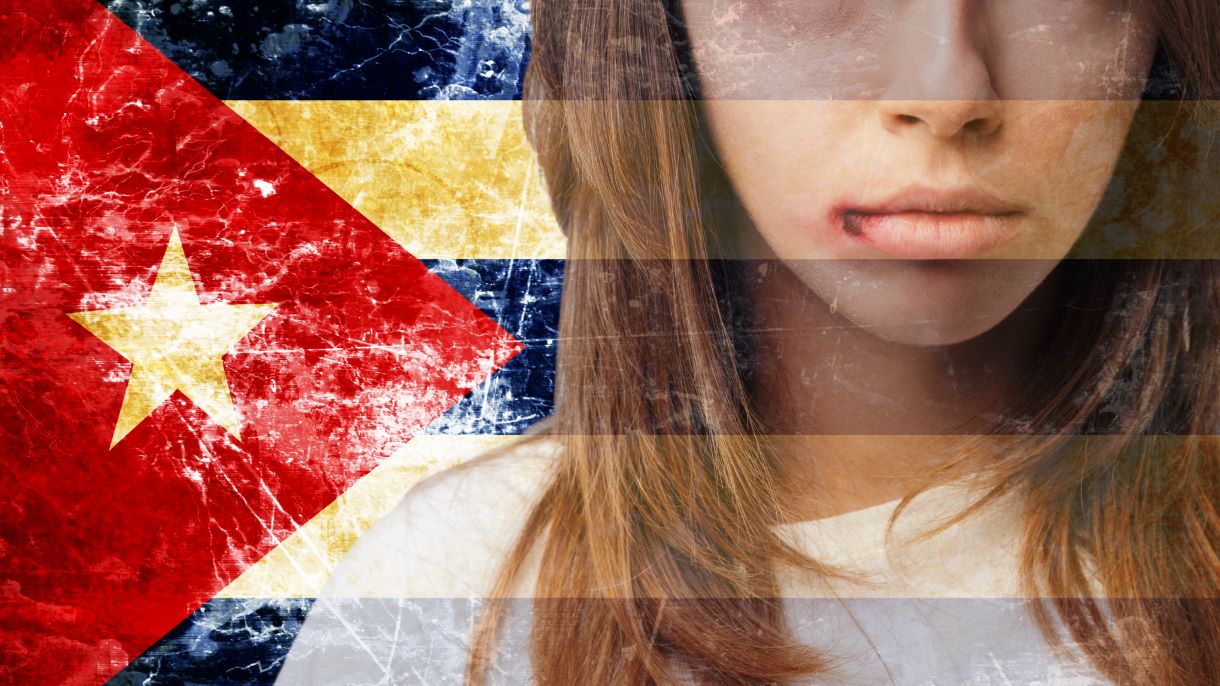The analysis of victimization data between 2022 and December 2023, set forth in the study Exploring Possible Futures for Democratization in Cuba, by the Cubadata project, reveals a disturbing increase in various forms of violence in Cuba, particularly gender-based, street, and police violence.
The results are part of the second multidimensional panel by the independent polling organization and six surveys carried out between September 2023 and February 2024 in which 10,248 people from all over the island participated, of which 4,552 were panelists; that is, individuals who were asked each month.
9.3% of the respondents said that they or someone in their household was a victim of rape, 4.3% more than in 2022. The number of those who suffered sexual harassment rose by more than 17%, to 27.3%.
Of those interviewed, 24.1% said they were victims of a street assault (compared to 14.1% in 2022) and 23.7% were victims of arrests or abuse by the authorities (17.6% in 2022).
Among those interviewed, 26.9% were victims of burglaries in their homes, off 25.1% in 2022, and the number of those affected by some kind of scam was 32.6%, 2.7% less than in 2022.
Physical assault was the most common crime suffered by participants: 43.5% in 2023, down 0.9% from 2022.
"The increase in gender-based violence, street violence and police abuse indicates growing insecurity and social deterioration in Cuba. These types of violence not only pose direct threats to the safety and well-being of individuals, but also reflect deeper structural problems," said Aristides A. Vara Horna, author of the study.
Likewise, the results of the second panel show how the regime in Cuba uses different forms of violence to maintain control and silence dissent. Domestic violence and sexual harassment are tools wielded to control women, especially female dissidents, while police violence is widely employed against those with divergent ideologies.
"This pattern suggests that the authoritarian regime in Cuba not only employs state violence directly, but also allows and, possibly, encourages other forms of violence to maintain its dominance," says Vara Horna.
Police-perpetrated and domestic violence
The study shows that state repression is particularly severe against those who do not support the dominant ideology. One instrument of control and deterrence is police violence, which "is intense against men who identify with another ideology, and liberals." The same trend is observed in the case of women. However, "gender violence is rampant" against women who identify with another ideology.
Cuba's supposed gender equality in Cuba is belied by evidence that women, especially female dissidents, suffer higher levels of violence and harassment.
Women consistently report higher levels of domestic violence and sexual harassment than men, regardless of political ideology, and this is even more widespread among women opposed to the Cuban regime, which "suggests that state repression and social control also extend into the domestic sphere, and violence is used as a tool to maintain control and silence dissidents," the study notes.
Moreover, the high prevalence of sexual harassment among even socialist women with reformist and liberal or pro-market leanings reflected in the study indicates that women who seek change and challenge the status quo are particularly vulnerable. These results reflect internal tensions and power conflicts within groups seeking reform in an authoritarian context, suggesting that sexual harassment is used as a form of intimidation and control.
According to Vara Horna, a specialist in statistical analysis, "these results together show that, although the State seeks to project an image of gender equality, women, especially members of the opposition, face high levels of violence and harassment," highlighting "the need to address both gender inequalities and forms of state violence to achieve significant change in Cuban society."
The analyst cites theories of regimes of gender (Connell, 1987; Walby, 2020) and violence (Hearn, Strid, Humbert and Balkmar, 2022) as a useful framework to understand how various forms of violence interrelate and exacerbate gender inequalities in Cuba.
"According to the theory, gender and violence regimes function together to maintain social and political control in authoritarian regimes. In this context, state violence ensures political domination, while gender-based violence ensures that women remain in subordinate roles and are less able to challenge the status quo."
